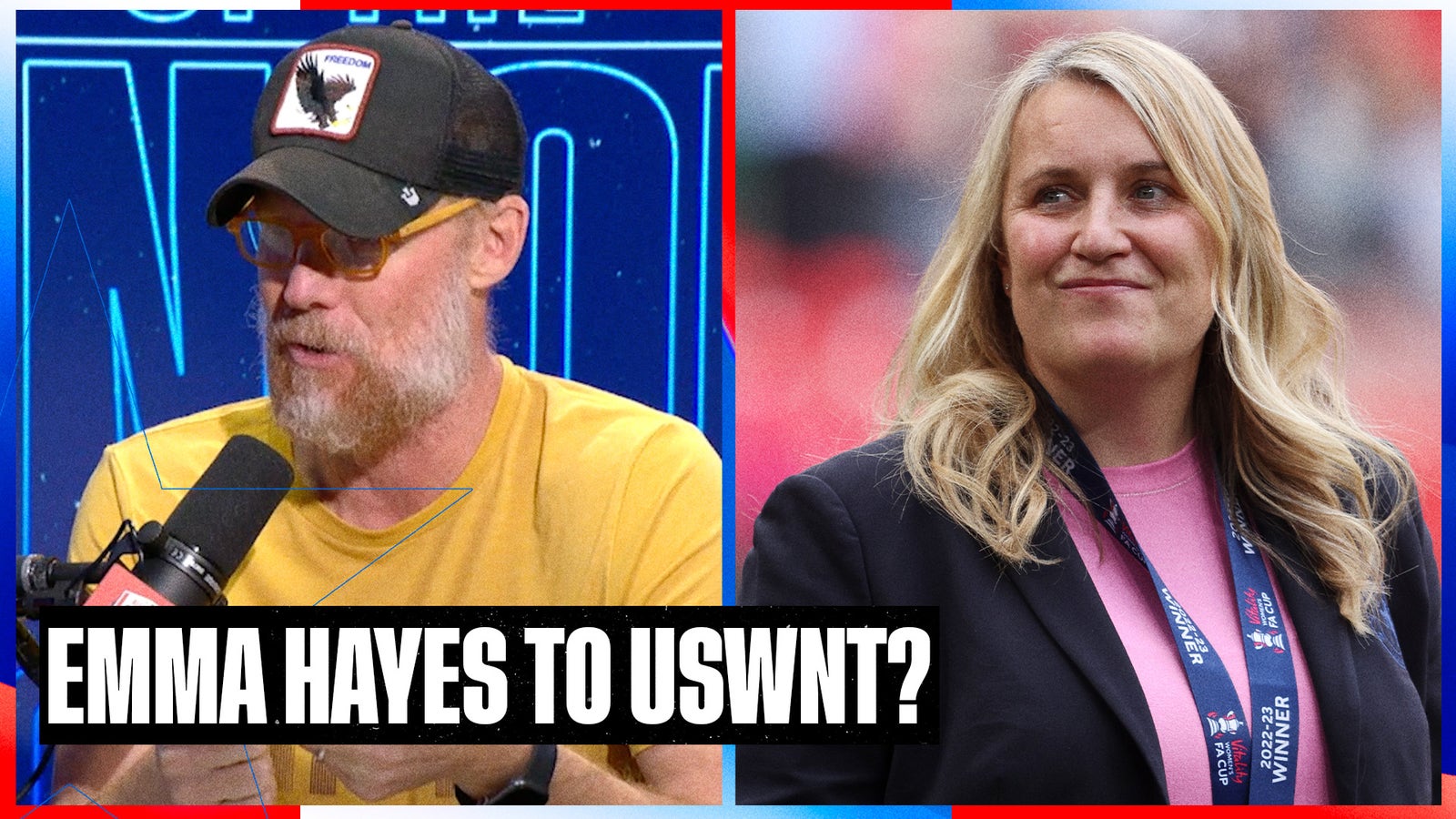
USWNT's hire of Emma Hayes is really a necessary admission
Editor's note: The United States women's national team officially appointed Emma Hayes as its head coach on Tuesday. Martin Rogers explains how Hayes' hire is a sign of how much the global game has grown, and how much the U.S. has fallen behind. The original story is as follows.
There are two messages to take from the United States women's national team's imminent hiring of Emma Hayes as head coach.
One is that U.S. Soccer is not messing around, having set its sights on one of the most highly regarded, best-credentialed tactical thinkers in the sport, and ponying up the financial package to get a deal done.
The other is the federation realizes there has been a sudden, dynamic change in the power base of women's soccer, and it doesn't want to be stuck on the wrong side of it.
It appears to be merely a matter of time before Hayes is officially unveiled. Chelsea announced over the weekend that the coach would leave her post at the end of the season to pursue "a new opportunity outside … club football." FOX Sports reported Saturday she is in "advanced discussions" to be the new USWNT coach, and the Philadelphia Inquirer reported late Saturday that the U.S. Soccer board had formally voted to approve the hire.
In persuading Hayes to give up her long-standing role in charge of Chelsea, where she won six Women's Super League titles and built a glittering reputation, American soccer chiefs have pulled off a major coup, the kind of splashy move to help the public forget about Vlatko Andonovski's doomed reign and stuttering World Cup campaign.
Yet it can also be seen as a necessary admission.
Quite simply, the USA is no longer the overwhelming force in women's soccer and that statement is based on much more than just the summer's World Cup failure, where an exit in the round of 16 marked the program's worst-ever finish.
For a long, long time, the standard of American players compared to the international field was correctly assumed to be superior. If, ahead of the 2019 tournament, you'd made the argument that 20 members of the USA's 23-strong squad were among the 75 best players in the world, you wouldn't have found too much dissent.
What a change. When the annual Ballon d'Or award was handed out last week only one American, Sophia Smith, made the long list, coming in at No. 25.
Women's soccer has become increasingly technical and in terms of ball movement and system structure, Spain, England and arguably the Netherlands and Sweden, were in a different league to the U.S. as the World Cup progressed in Australia and New Zealand. At the same time, the Europeans have caught up physically, helped in part by training full-time in elite facilities, if not shared with top men's teams then modeled upon them.
Hayes has been at the heart of that progress. Chelsea's women's squad plays soccer at the very cutting edge, utilizing rapid movement, intricate shifts, innovative formations and situational nuance, able to be implemented because theirs is a squad packed with world-class performers.
[Becky Sauerbrunn hopes new USWNT coach can 'get the best out of this group']
In the USA, the National Women's Soccer League is an important competition which used to be the best in the world.
But the level of on-field, high-stakes chess that Hayes' Chelsea, or Manchester City, Manchester United, Arsenal, Barcelona, Real Madrid, Bayern Munich or Wolfsburg are playing simply doesn't happen here. U.S. national team players are sprinkled around the 12-team NWSL, plus a mere handful of top level imports — Brazil's Debinha and Marta are 32 and 37 — then a core of solid players who have mostly come from the college ranks.
The NWSL can no longer make any kind of feasible argument that it is the best league in the world, or even one of the top few, and that's not its own fault. Once deep-pocketed European clubs that rake in billions in revenue from their men's teams got serious about women's soccer, things were only going to go one way.
The best European outfits can offer not only the lure of the Champions League but are also able to adopt a "whatever it costs" policy to acquire the world's best talent. Women's soccer players are finally getting something closer to what their ability warrants, and that is a good thing.
It has come at a cost for the NWSL, however.
Hayes' signing positions things interestingly. Hayes knows all about the quality of competition on offer in Europe, having led Chelsea for more than a decade and seen the evolution of the Champions League into an all-star spectacle.
It is not difficult to image Hayes will be quick to encourage her best players, and certainly youngsters such as Trinity Rodman and Smith, to test themselves at the highest level — either in England, Spain or Germany — at least for a few years.
[Ready or not, the next generation of USWNT stars is here]
After all, if you can't beat them, join them. Such a move wouldn't be an admission of defeat. Just like the process of going after Hayes, it would be a sign of awareness, even if the truth (deep breath) is a painful one.
The United States faces a tough, grueling, unforgiving road ahead if it is to get back to the top of women's soccer.
There are no guarantees, but it is close to landing the right person — with the right set of credentials — to steer the ship.
Martin Rogers is a columnist for FOX Sports and the author of the FOX Sports Insider newsletter. Follow him on Twitter @MRogersFOX and subscribe to the daily newsletter.


